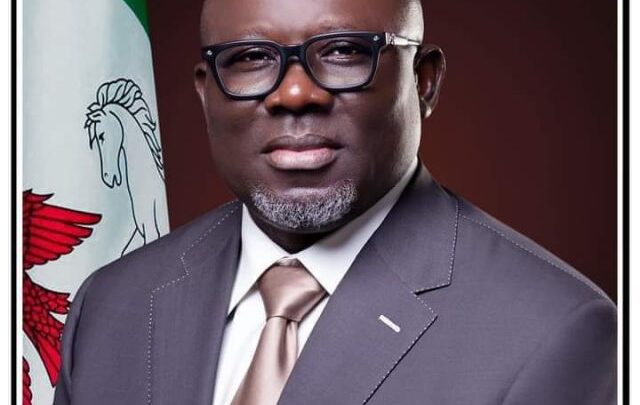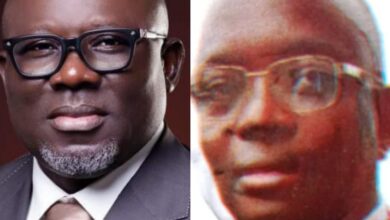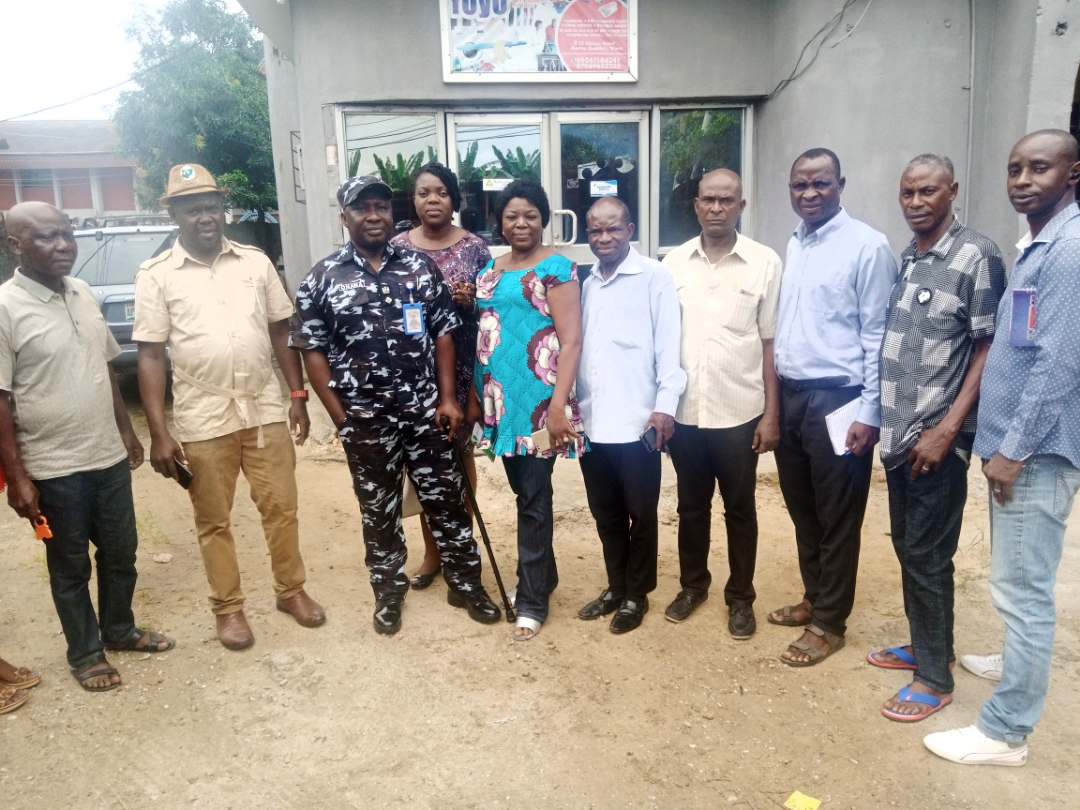News
Delta NUJ Slams Gov. Oborevwori Over Failed Media Relations Despite “More” Agenda Claims

By Oghenerona Tejiri, Warri
In a bold and pointed statement, the Delta State Council of the Nigeria Union of Journalists (NUJ) has taken a swipe at Governor Sheriff Oborevwori’s administration, accusing it of neglecting the media and undermining the principles of democratic accountability despite public claims of progress under his “MORE” Agenda.
While acknowledging infrastructural developments and workers’ welfare improvements, the NUJ sharply criticized the Governor’s media strategy — or lack thereof — describing it as “selective, inconsistent, and insufficiently structured.”
The Council warned that the administration’s continued disregard for open and institutionalized media engagement poses a serious threat to transparency and good governance in the state.
“Two years into the administration, journalists in Delta are being sidelined, with no regular access to the Governor and no consistent briefing platforms,” the Council stated in a strongly worded release signed by its Chairman, Comrade Churchill Oyowe, and Secretary, Comrade Victor Sorokwu. “The token 100% increase in stipends for some journalists cannot mask the administration’s failure to build meaningful dialogue with the press.”
Citing the constitutional mandate of the press to hold public officials accountable, the NUJ accused the government of falling short of democratic expectations, unlike previous administrations that institutionalized quarterly press briefings and routine media parleys.
“It is disappointing that Governor Oborevwori, who has been praised in some media circles, has not institutionalized any direct communication channels with local journalists,” the statement read.
“Accolades and awards from select media organisations are no substitute for robust, state-wide media engagement.”
The Union also expressed dismay that their gesture of goodwill — including a national newspaper advertorial in the administration’s first year — has gone unreciprocated.
According to the Council, the lack of engagement signals a worrying detachment from democratic norms and a disregard for the Fourth Estate.
“The widening gap between government and the media is alarming. If this persists, it could taint the Governor’s legacy and damage public trust,” the NUJ warned, adding that such negligence reflects either a deliberate effort to avoid scrutiny or a fundamental misunderstanding of the media’s constitutional role.
Calling on the Governor to “recalibrate his media engagement strategy,” the NUJ demanded open, inclusive access for journalists across the state via live briefings, radio and television forums, and physical press conferences.
“This is not about personal interests — it’s about restoring accountability, public confidence, and transparency in governance,” the Council asserted. “Governor Oborevwori still has time to reverse this troubling trend — but the clock is ticking.”
With this sharp rebuke, the NUJ has positioned itself as a watchdog unwilling to be placated by half-measures — and has drawn a clear line: the media must not be treated as an afterthought in Delta’s democratic journey.
In a bold and pointed statement, the Delta State Council of the Nigeria Union of Journalists (NUJ) has taken a swipe at Governor Sheriff Oborevwori’s administration, accusing it of neglecting the media and undermining the principles of democratic accountability despite public claims of progress under his “MORE” Agenda.
While acknowledging infrastructural developments and workers’ welfare improvements, the NUJ sharply criticized the Governor’s media strategy — or lack thereof — describing it as “selective, inconsistent, and insufficiently structured.”
The Council warned that the administration’s continued disregard for open and institutionalized media engagement poses a serious threat to transparency and good governance in the state.
“Two years into the administration, journalists in Delta are being sidelined, with no regular access to the Governor and no consistent briefing platforms,” the Council stated in a strongly worded release signed by its Chairman, Comrade Churchill Oyowe, and Secretary, Comrade Victor Sorokwu. “The token 100% increase in stipends for some journalists cannot mask the administration’s failure to build meaningful dialogue with the press.”
Citing the constitutional mandate of the press to hold public officials accountable, the NUJ accused the government of falling short of democratic expectations, unlike previous administrations that institutionalized quarterly press briefings and routine media parleys.
“It is disappointing that Governor Oborevwori, who has been praised in some media circles, has not institutionalized any direct communication channels with local journalists,” the statement read.
“Accolades and awards from select media organisations are no substitute for robust, state-wide media engagement.”
The Union also expressed dismay that their gesture of goodwill — including a national newspaper advertorial in the administration’s first year — has gone unreciprocated.
According to the Council, the lack of engagement signals a worrying detachment from democratic norms and a disregard for the Fourth Estate.
“The widening gap between government and the media is alarming. If this persists, it could taint the Governor’s legacy and damage public trust,” the NUJ warned, adding that such negligence reflects either a deliberate effort to avoid scrutiny or a fundamental misunderstanding of the media’s constitutional role.
Calling on the Governor to “recalibrate his media engagement strategy,” the NUJ demanded open, inclusive access for journalists across the state via live briefings, radio and television forums, and physical press conferences.
“This is not about personal interests — it’s about restoring accountability, public confidence, and transparency in governance,” the Council asserted. “Governor Oborevwori still has time to reverse this troubling trend — but the clock is ticking.”
With this sharp rebuke, the NUJ has positioned itself as a watchdog unwilling to be placated by half-measures — and has drawn a clear line: the media must not be treated as an afterthought in Delta’s democratic journey.

